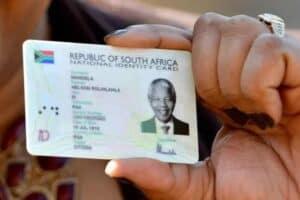Deputy minister urges parents to register their children within 10 days after they are born to reduce the need for late registrations.

Deputy Minister of Home Affairs Njabulo Nzuza on Friday handed over 100 birth certificates and identity documents to successful late birth registration applicants in Mabopane, north of Tshwane.
Speaking to The Citizen, Nzuza clarified the department’s stance on documentation for foreign nationals.
“Birth certificates are only issued to South Africans. For foreign nationals, we issue them with a notice of birth,” he said.
Documenting South Africans, not foreigners
Nzuza said that no birth certificates were given to foreign-born individuals, amid rising concern about documentation fraud and misperceptions about illegal immigration.
“We have to safeguard the integrity of the population register against fraudulent registration,” Nzuza said.
“There are attempts where people try to register foreign nationals as South Africans. That’s why we conduct a lengthy process, including interviews and verification.”
He said the department’s responsibility is to ensure that only eligible citizens are officially recorded.
“In South Africa, to be a citizen by birth, you must be born to South African parents, or at least one parent must be South African. If we can’t trace a parent, we cannot assume citizenship,” he said.
ALSO READ: Schreiber on Afrikaner farmers’ citizenship as Ramaphosa downplays African Americans refugee offer
Challenges with undocumented children
Nzuza said social development often intervenes in cases where children are abandoned or orphaned, complicating the registration process.
“These children are sometimes left with people who are not their biological parents. If we can’t verify that they are South African, it becomes an issue. But every South African child deserves to be documented, regardless of the circumstances of their birth,” he said.
The deputy minister urged parents to register their children within 10 days after they are born to reduce the need for late registrations.
“We are developing systems where a parent can register a child using fingerprints and instant online verification,” said Nzuza.
“In hospitals with more than 5 000 births annually, we’ve stationed home affairs units so that no child leaves without being registered.”
ALSO READ: Delay expected in Sassa grant payments for May — These are the beneficiaries affected
Restoring dignity
According to the department, the event formed part of an ongoing drive by the department to register South Africans who were never added to the national population register.
Many recipients had lived without documentation their entire lives. One beneficiary was born in 1973 and received an identity document for the first time.
“We are officially entering them into the population register. They can now access services such as social grants, healthcare and employment,” said Nzuza.
The event was also supported by the Gauteng department of social development, with MEC Faith Mazibuko present to oversee the provision of related services.
The South African social security agency and department of employment and labour were also part of the outreach.
NOW READ: WATCH: BMA intercepts and detains over 6 000 people trying to enter or leave SA illegally
Support Local Journalism
Add The Citizen as a Preferred Source on Google and follow us on Google News to see more of our trusted reporting in Google News and Top Stories.








